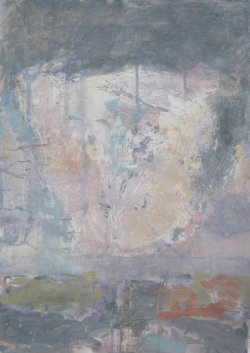|
Vicar's Musings for Ordinary Sunday 3210 November, 2013 The following is drawn from a paper that Fr Hugh delivered last month to a positive psychology colloquium in Canterbury, England. In Western society it has become taboo to mention personal mystical or religious experience. Such talk, these days, seems to contravene a secular code. I was flying to London recently, and by coincidence was seated next to an old friend I had not seen for a long time. We started chatting and I mentioned the colloquium I was attending, hosted by the positive psychologist Marty Seligman. It was a small gathering of psychologists and theologians on the topic of Prospection, a new area of research concerned with vocation, teleology and calling. My particular interest is mystical experience and how dreams and visions call us into the future. As I talked to my friend about this, he started recounting a particularly vivid dream from around the time of his father's death and noted as he began, "I've never told this to anyone outside my immediate family." The numinous was palpable as we spoke, and for several hours between Melbourne and Dubai we exchanged story after story, in hushed tones, of our spiritual experiences. Time flew by. It was a sacred and I suspect even a healing conversation. Talking about religious or spiritual experience is not common today because the mystical has largely been excised from our secular society. Important as this corrective may have been for the development of science and technology in a post-enlightenment world, there is undoubtedly a baby that has been thrown out with the bathwater. William James put it well more than a century ago in his seminal psychological study of religious experience (The Varieties of Religious Experience, 1902/1982, Penguin, p. 428): Mystical states indeed wield no authority due to them being mystical states. But the higher ones among them point in directions to which the religious sentiments even of non-mystical [people] incline. They tell of the supremacy of the ideal, of vastness, of union, of safety, and of rest. They offer us hypotheses, hypotheses which we may voluntarily ignore, but which as thinkers we cannot possibly upset. The supernaturalism and optimism to which they would persuade us may, interpreted in one way or another, be after all the truest of insights into the meaning of this life. As an Anglican Vicar, and I find it sadly ironic that even in many churches today it is frowned upon to talk about personal religious experience. Many think that such things are superstitious and best left to the religious fundamentalists. Soon after I moved to St Peter's a new parishioner asked to see me, to talk about a profound mystical experience that had overwhelmed her. She had heard that I was interested in mysticism. What did her experience mean? Was she going mad? How could I help her make sense of it all? Then a week later a young man turned up to church with a similar story. I asked them both if they would like to meet together with me to talk about these experiences, and before long a third person joined us. We decided to call the group, slightly tongue-in-cheek, Mystics Anonymous. Word soon spread that this was a safe place to talk about spiritual experience and before too long the group grew. The group is now a part of the furniture at St Peter's Eastern Hill, and new groups are being planned, here in Melbourne and even overseas. One of the things we do as a group, as well as talking about our own experience, is to read mystical texts together. I usually say to new members, "Your experience may seem strange, but it is by no means unique; many others have traversed this terrain before you and have left us some pretty amazing road maps." We use the Benedictine monastic method of reading, known as Lectio divina in Latin or "spiritual reading." It is a mindful way of reading a text, slowing down the reading process, chewing over each word, and using the writing as a springboard into silence and meditation. The St Peter's branch of Mystics Anonymous meets on Wednesday afternoons, at 2.30pm in the Vicarage. All are most welcome to come and join us. The Rev'd Dr Hugh Kempster |

Views is a publication of |
|
Authorized by the Vicar
(vicar@stpeters.org.au) |
